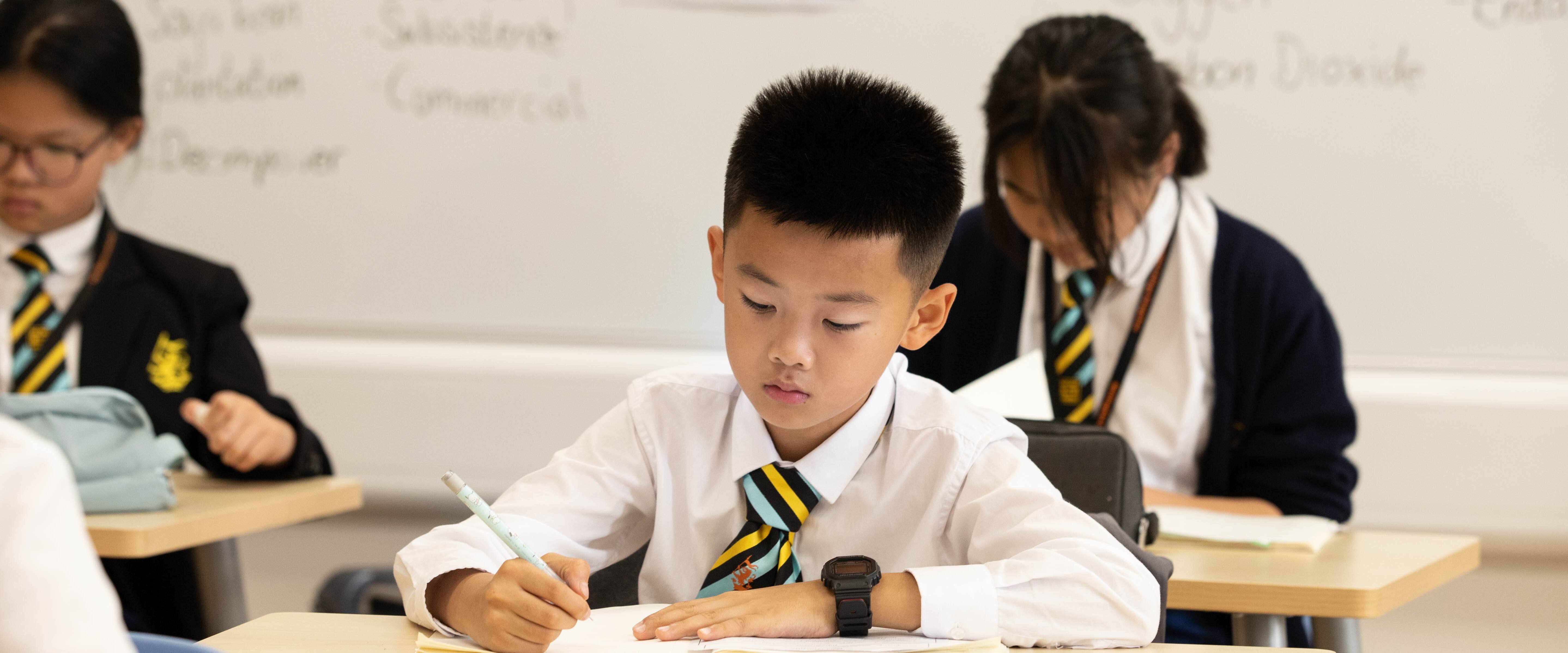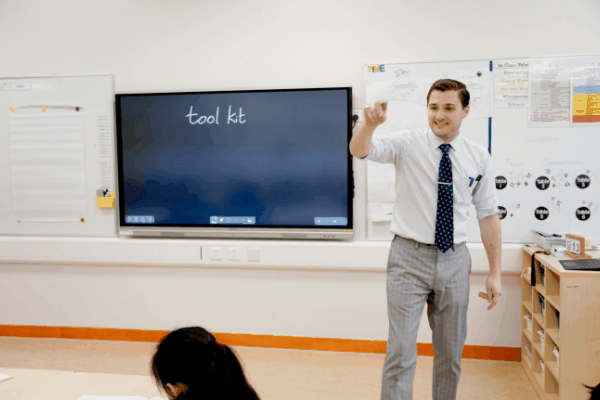
The English curriculum at Hiba Academy Hangzhou Junior High is one that develops pupils as international citizens. Our course aims to give pupils the skills and expertise to strive for the first language English IGCSE course, an internationally recognised qualification, but also to have the confidence to lead and inspire others.
Imitation, where children learn a model text deeply and analyse it
Innovation, where children practice writing similar stories in a structured way
Invention, where children use all of their learning to create an independent piece of work

As children learn we continuously monitor the four main language skills of reading, writing, speaking and listening. Pupils’ outcomes in these four skills are tracked against rubrics taken from the key learning objectives which enables teachers to track and monitor pupils’ progress towards successful outcomes. This assessment is holistic using regular marking as well as through end of unit and end of semester checks.